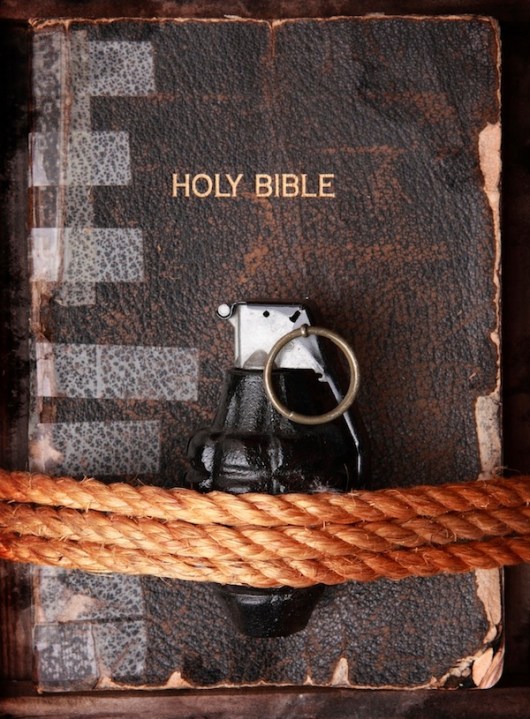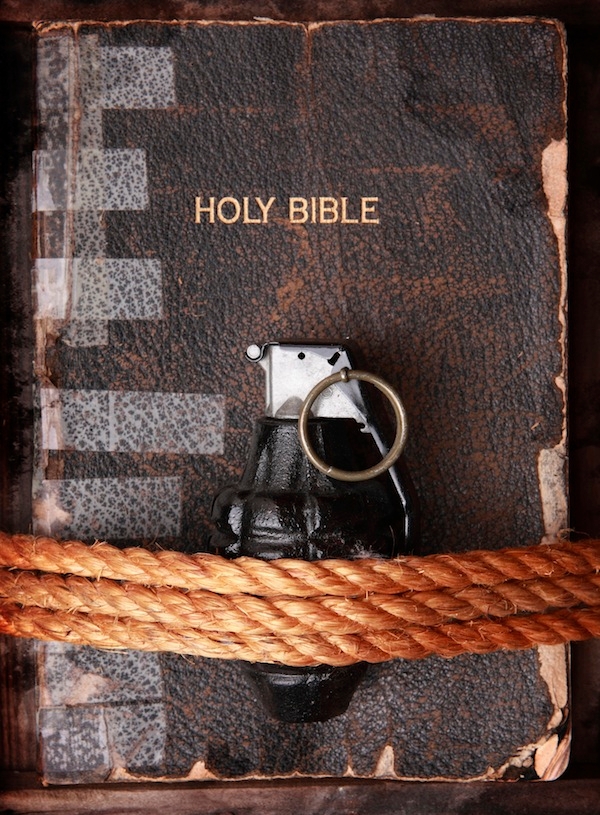Sometimes a perfectly good argument can be stretched too far. I heard the resulting snapping noise last week in Cambridge during a debate with Richard Dawkins. We were meant to be on the same side at the Union. But over some months the motion hardened and eventually became ‘This House believes religion should have no place in the 21st century.’ While an atheist myself, it seems to me that claiming that religion should disappear is not just an overstatement but a seismic mistake. So I joined Rowan Williams and my close enemy Tariq Ramadan in trying to explain to Dawkins and co where they might have gone wrong.
The Union was packed, with screens relaying the debate live around the building. It was a reminder — a few days before Justin Welby, Williams’s successor as Archbishop of Canterbury, made the point — that the role of religion in our national discussion is by no means absent.
The more I listened to Dawkins and his colleagues, the more the nature of what has gone wrong with their argument seemed clear. Religion was portrayed as a force of unremitting awfulness, a poisoned root from which no good fruit could grow. It seems to me the work not of a thinker but of any balanced observer to notice that this is not the case. In their insistence to the contrary, a new — if mercifully non-violent — dogma has emerged. And the argument has stalled.
These new atheists remain incapable of getting beyond the question, ‘Is it true?’ They assume that by ‘true’ we agree them to mean ‘literally true’. They also assume that if the answer is ‘no’, then that closes everything. But it does not. Just because something is not literally true does not mean that there is no truth, or worth, in it.
Schopenhauer said that truth may be like water: it needs a vessel to carry it. It is all very well to point out — as Dawkins did again the other night — that Adam did not exist. But to think that this discovery makes not just the story of Eden but the narrative of the crucifixion and resurrection meaningless is to rather startlingly miss a point. You can be in agreement with Professor Dawkins that Adam did not exist, yet know and feel that the story of Eden speaks profoundly about ourselves.
Dawkins and his colleagues were wholly unprepared to consider this. I know and appreciate how heady the fuel of iconoclasm can be. But it is while high on destruction that one ought most to consider whether what you are pulling down is as wholly valueless as you might temporarily have to pretend it is, and whether you have anything remotely as good to put in its place.
In the same way that many of the religious refuse to admit what their arguments miss, for fear the whole edifice will crumble, so it is that many atheists fear any similar concession for fear that their line will break and the religious flood through the breach. But I think we should be frank. There are things which atheists miss.
For example, my fellow atheist opponents the other night portrayed the future — if we could only shrug off religion — as a wonderful sunlit upland, where reasonable people would make reasonable decisions in a reasonable world. Is it not at least equally likely that if you keep telling people that they lead meaningless lives in a meaningless universe you might just find yourself with — at best — a vacuous life and a hollow culture? My first exhibit in submission involves turning on a television.
Religion, whether you believe it to be literally true or not, provided people, and provides people still, with a place to ask questions we must ask. Why are we here? How should we live? How can we be good? Atheists often argue that these questions can be equally answered by reading poetry or studying philosophy. Perhaps, but how many people who would once have gathered in a place of worship now meet on philosophy courses? Oughtn’t poetry books to be selling by the millions by now?
We do not have many vessels for truth-carrying in our age. While of course not being an organised body of thought, atheism might one day speak to all those things religion once answered. But at present its voice is faint. It is faint on human suffering and tragedy. And although it does not have nothing to say, it barely speaks about death. It has little if not nothing to say about human forgiveness, remorse, regret or reconciliation. These are not small ellipses. Until atheism can speak into these voids, desiring to ban religion entirely seems a push not only to deprive individuals of a consolation at which Professor Dawkins scoffs — though he would do better to address it — but also to strip many discussions of profound dimensions.
As each side aimed the usual blows at the other that evening, I wondered again if this gulf between believers and non-believers can ever be addressed. Do we have to resign ourselves to a continuous, circular fight between the believers and the non-believers? I do not think so. If I might suggest a deal, it would be this.
First, religions must give up the aspiration to intervene in secular law in the democratic state. In particular they must give up any desire to hold legislative power over those who are not members of their faith. In much of the world the Christian churches have already done this. Of course there are other religions and places where this separation has not been so nearly achieved. But the concession is vital, not least because the ability to dictate politics or law is the ability that most rightly concerns the non-religious about religions.
But non-believers like me should make a concession as well. We should concede that, when it comes to discussions of ideas, morality and meaning, religion does have a place. Rather than dismissing it as some mere relict of our past, we should acknowledge that religion has an important contribution to our present and future discussion. We may not agree with the foundational claims, but we might at least agree not always and only to deride, laugh at and dismiss as meaningless something which searches sincerely for meaning.
The role of conciliator may not come naturally to many atheists. But something must be done to prevent believers and non-believers spending yet another century talking past each other.








Comments